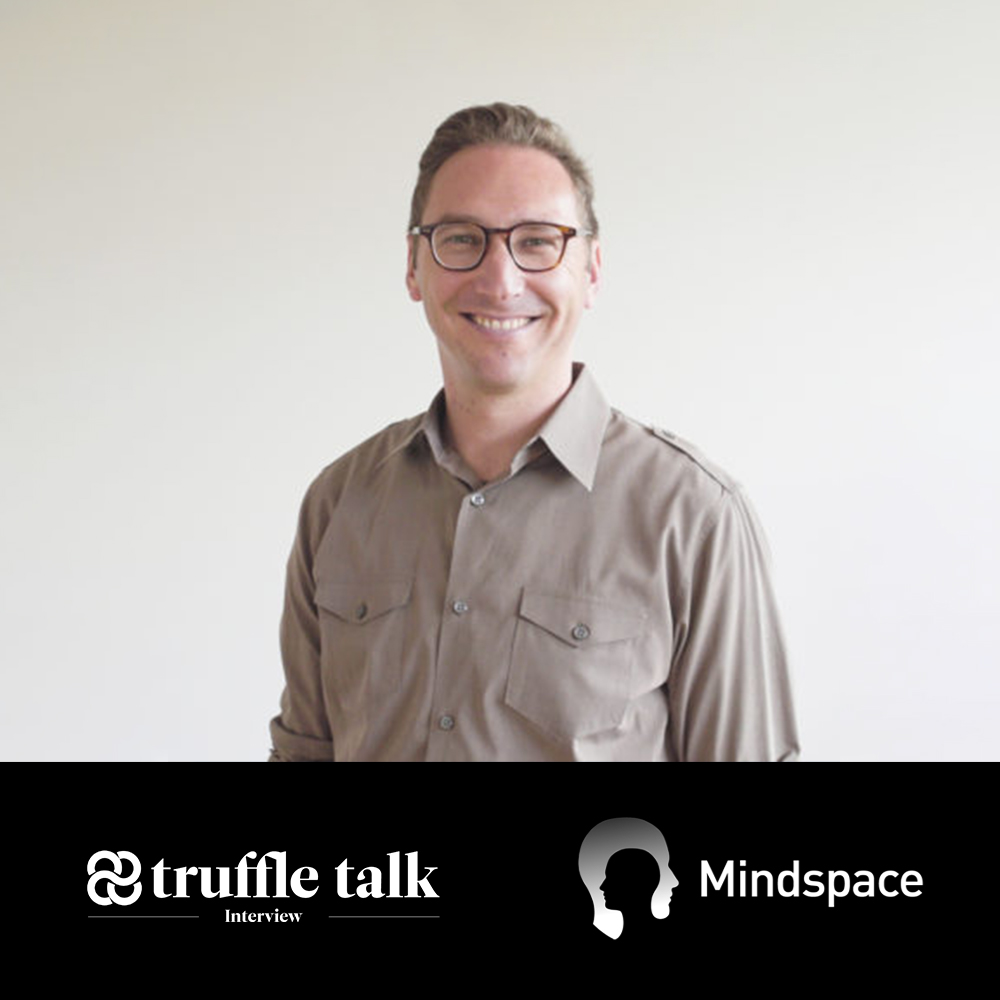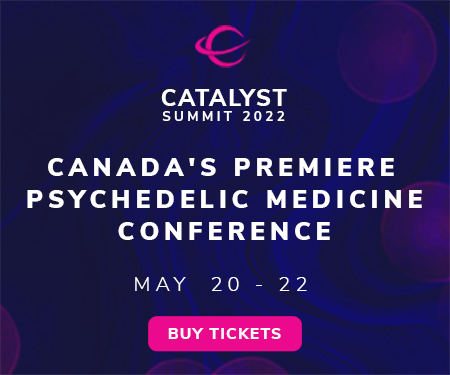Based in Montreal, Mindspace Wellbeing is the first clinic to make ketamine-assisted psychotherapy available to the public in Quebec. Founded by clinical psychologist and current director Dr. Joe Flanders in 2011, Mindspace offers individual, couples, and group psychological therapies, mindfulness training, and psychedelic-assisted psychotherapy.
Truffle Report reached out to Dr. Flanders about his interest in well-being and happiness, Mindspace’s protocols, and the potential benefits of ketamine-assisted psychotherapy.
What Specifically Drew You to Psychedelics?
Dr. Flanders: I’m just naturally drawn and passionate about understanding the emotional life of humans, myself included, and understanding how to live a life that’s full of joy, meaning, and engagement. I’m always interested in new ways to improve my well-being, understand more about what it means to lead a happy life. My insatiable curiosity about well-being and happiness led me into a career as a psychologist. I’m always looking for new and innovative ways to help my clients. I’ve tried different tools and approaches to psychotherapy. I became a mindfulness teacher because mindfulness meditation is a powerful tool for healing, relapse prevention, and depression. It helps people cultivate a healthy lifestyle, a meaningful and spiritually fulfilling one. Along this path that I’m on, psychedelics hit my radar, and I very quickly realized they can be incredibly powerful tools. I’m excited about the possibility of them being available to people who need them.
Ketamine Infusion Protocols
Dr. Flanders: We’re adopting a protocol called emotion-focused ketamine assisted psychotherapy (EF-KAP). It’s about four to six weeks of intervention with several dosing and integration sessions. We’re using sublingual ketamine. It’s more of a psycholytic model than a full psychedelic model. The idea is that sublingual ketamine will facilitate opening and connecting in a psychotherapy session to make it much more efficient and much deeper. We’re starting with depression as the main indication, even though there’s some evidence that it could be used for other things like trauma or substance use. Because of the medical and legal gray zone that we’re operating in, in an off-label context, we’re going to stick as closely as we can to the Spravato protocol that has been approved for use by Health Canada.
To qualify for Mindspace’s ketamine-assisted psychotherapy, a patient needs to be suffering from depression, and to have had two previous medications fail.
Mindspace Training
Dr. Flanders: We have a team of people trained in the EF-KAP protocol, with more training coming up in March. The training will be hosted by Mindspace and is open to the public, or any mental health practitioner, and will be facilitated by Dr. Adèle Lafrance. This approach is very explicit and very structured around working through emotion to resolve a complex of bad habits surrounding emotion. I think for depression that’s a great fit. The plan from there is to have ongoing supervision. We consider ourselves a community of practitioners, we’re all trained in the same approach, doing the same therapy, and we’re going to meet regularly and support each other. We’re going to make sure that we’re continuing to evolve and develop as therapists and refine our skills and be the best that we can be for clients.
Potential Benefits and Possible Side Effects of Ketamine-Assisted Therapy
Dr. Flanders: We spend a lot of time trying to create a safe environment where clients can open up and get into the core issues that are driving their mood disorders in non-psychedelic psychotherapy. In that context, they have insights, they work through their difficulties and begin to integrate those insights into their day-to-day life. I think the benefit of ketamine is that it, in a much more direct and rapid way, creates that sense of safety, that sense of connection, sense of calm. It facilitates openness and a deeper, broader understanding of what’s keeping people stuck. As a therapist, it is irresistible to imagine being able to do that more efficiently. It has the potential to help people more quickly. It also creates a little bit of a boost to your mood, makes people a little bit more hopeful, a little bit more energized in addition to those other elements. So far, from what I’ve seen, it’s quite a powerful medication and can be very interesting as an approach to helping with depression. One of the things we have to look out for with ketamine is that it can be habit-forming. There are a lot of safeguards against that in our protocol. We have a nurse available to monitor blood pressure during the dosing sessions due to ketamine’s ability to increase someone’s blood pressure. We have a very elaborate and carefully constructed screening process with our doctor that we work with. We have a psychiatrist on the team who can help manage medications and other psychiatric issues. Given all those safeguards, it’s very safe and well-tolerated. But this is not something to try at home. There’s a lot of infrastructure in place for us to do this safely and therapeutically.
Acquisition by Numinus Wellness
In early February of 2021, Numinus Wellness, a Vancouver-based health care company, closed its acquisition of Mindspace Wellbeing. The purchase agreement had been previously announced on December 15, 2020.
Dr. Flanders: We’re watching Health Canada’s Special Access Program (SAP) very closely. This is a program that makes drugs that are not yet approved by Health Canada available to people that need them. At some point, there will be clear guidelines for who is eligible to access MDMA for PTSD and psilocybin for depression. Health Canada will provide the kind of expectations and the framework for what kind of environment and treatment setting training can be done in. Many of us are getting trained, in both MDMA for PTSD and psilocybin for depression, to be able to offer those treatments as soon as Health Canada permits us to do it. Numinus has been a leader in advocating for and working with Health Canada on the Special Access Program, and because of our association with Numinus, we are in a strong position to implement what they require in terms of our infrastructure and start rolling out the treatments as soon as we’re allowed.

















